With already three reported cases of Covid-19 and 50 beds with respirators throughout the national territory, people wonder if Burundi is sufficiently equipped to face this pandemic.
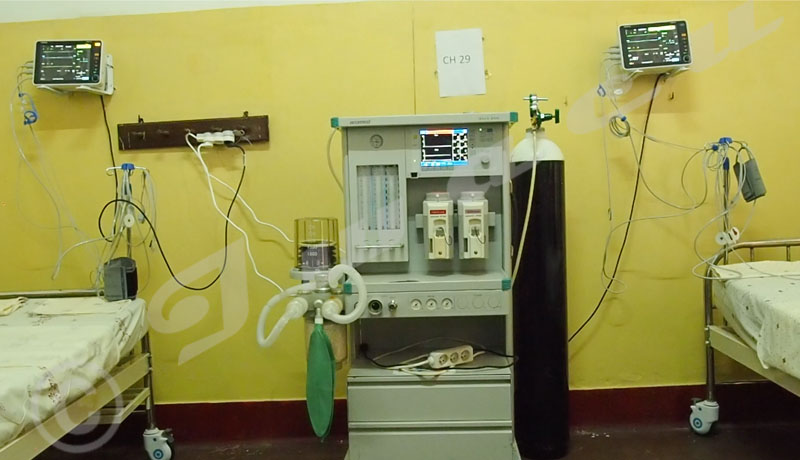
According to some experts, Burundi should have more equipment to deal with this virus
A 26-year-old woman tested positive for Covid-19. This was announced by the Minister of Public Health, Thaddée Ndikumana, after a press conference held in the evening of this Thursday, April 2.
The Minister revealed that tests had been carried out on twenty-three “contact persons” of the two patients who recently tested positive for Covid-19. Mr. Thaddée Ndikumana then declared that out of the twenty-three people screened, twenty-two tested negative. “Only one case tested positive: a 26-year-old girl who lived with one of the two patients who recently tested positive,” said Minister Ndikumana.
That patient, according to the minister, is now taken care of in the ”Covid-19 Treatment Center ” at Prince Louis Rwagasore Clinic. “Her health condition is good,” said the minister.
This Health minister who is usually very comfortable with the press seemed somewhat strained and evasive at the announcement of the first two patients who tested positive for the virus, this Tuesday, March 31. No doubt he measures the daunting task awaiting him.
This nervousness seems to attest that at the highest level, the situation is not entirely under his control despite the assurances.
A day later, on Wednesday April 1st, he issued a press release to reassure the population: “The users of Prince Louis Rwagasore Clinic should in no way be afraid to be contaminated since all the arrangements have been made to separate the treatment center for Covid-19 patients from the other care services of the hospital.” He also clarified that “the identification and quarantine of contacts cases of 2 people who tested positive for Covid-19 continues normally.”
Unfortunately, this mobilization is not sufficient at all as some habits persist, says HN, a public health expert.
For him, it is high time the competent authorities took clear measures prohibiting the gathering of people in places likely to accommodate many people, including the public transport.
“It is good that prayer strengthens faith. But at this stage, the administration at all levels should avoid being lax and understand the urgency of the situation.”
If necessary, this expert does not exclude the daily spraying of all buses used for public transport. The porous borders in some provinces close to DRC, Tanzania and Rwanda should also be supervised to prevent the virus from spreading inside the country.”
Despite the already reported cases, argues Alain, a driver of an NGO, “a very large segment of the population still doesn’t comply with hygiene measures.” For him, this is sufficient proof showing that like in urban centers, significant awareness must be raised.
Insufficient equipment
With four machines used to test the Covid-19 from the National Health Institute, two being capable of carrying out 96 tests at the same time every 3 hours and two others capable of processing 32 samples, if one believes what was said by the Health Minister, diagnosing the disease would not be a problem. Unfortunately, regrets the public health expert interviewed by Iwacu, this speech is far from reflecting the reality as the number of laboratory technicians with the ability to do these tests is far from being sufficient.
It is the same for the accessibility of people from the interior of the country to screening centers. “With only three laboratory technicians able to carry out the PCR test, we cannot proudly say that we are sufficiently prepared to deal with many cases”. As the machines with 32 samples are mobile, he believes there should be teams of laboratory assistants available in each province. “This would prevent the complications of the disease since the screenings would be done in real time.”
What about the reception capacity in the event of hospitalization? Around 50 equipped beds (including respirators) throughout the national territory. WHO experts who spoke on condition of anonymity unanimously said it’s a very insufficient number. “If we take into account usual projections to prepare in the event of such a pandemic, this figure is 24 times lower than expectations.”
Taking the example of the city of Wuhan (in China) where the virus was first reported and whose population is estimated at 12 million (population equivalent to that of Burundi), 10% of this population contracted the disease. 80% of this population has resisted the disease and therefore have not developed symptoms that can be treated in hospital. Of the remaining 20%, 5% saw their condition worsen over time, developing respiratory problems. The latter resulted in the use of mechanical respirators. The city went all out to find 12,000 beds with respirators. According to this expert, this figure corresponds to the number of beds that Burundi should have to deal with Covid-19.
Scary projections
At its beginnings, considered as a disease whose victims are mainly elderly people (generally over 60 years), the deaths of adolescents (France and Belgium) as well as that of a six-month-old baby (in the USA), show the disease can strike everyone. A fatality rate, according to WHO studies, which increases when the immune system is weakened. In view of this situation, suggests CN, a statistician contacted, this disease will wreak enormous havoc in Burundi, if ever it becomes widespread throughout the national territory. Allusion made to the rate of chronic malnutrition of around 60% among children aged between 0-59 months in several localities in the interior of the country.
With 30% of the Burundian population whose age ranges between 15 and 25 years, this statistician says it is the youth who would be hit hard.
Quarantine for travelers, a shaky measure
To deal with Covid-19, the Ministry of Health announced several weeks ago, the quarantine for travelers arriving from countries affected by the pandemic. The application of the measure gives a glimpse of huge flaws.
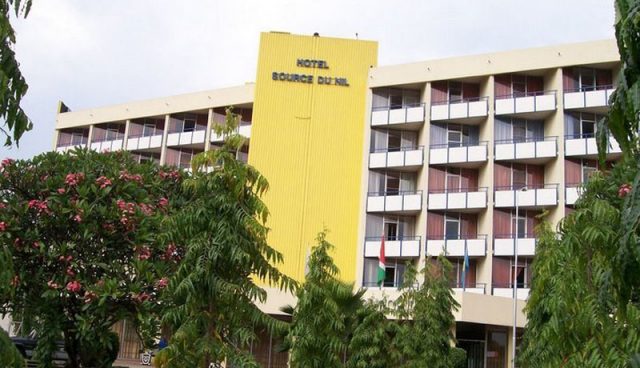
Hotel Meridien Source du Nil where part of the passengers from the countries affected by Covid-19 are confined
U .T. arrived from Belgium on March 16. She had participated in the mourning of a loved one. Four days earlier, the Ministry of Health had decreed that passengers from all the European Union countries will be put in quarantine.
UT, like other travelers, will be transferred to the Méridien Source du Nil hotel. “Members of the nursing staff wearing masks came to take the temperature in the morning and in the evening,” says this forty-year-old woman.
U. T says that meals were served in the rooms. However, according to this Burundian from Belgium, leniency was observed in the respect of social distancing on the part of the residents of the hotel. “Many people there did not feel like staying confined in their respective rooms. Suddenly, as everyone wanted to go out “to get some fresh air”, we often found ourselves outside, in a group! ”
However, the mother considers that “the health authorities have done their best in caring for people confined to this hotel “.
L.J is a young Burundian doing his secondary studies in Rwanda. “When we learned the first case of coronavirus in Rwanda, we hurried back to Burundi. We were a group of 24 students, all from the same school,” said this teenager.
But this return will be marked by obstacles. “When we arrived at the border, we were stopped by Rwandan soldiers who escorted us back.”
LJ and his friends did not give up on returning to their homeland. After six days, they tried again to return to Burundi. This time, the Rwandan soldiers let them cross the border that separates the two countries.
At that time, the Burundian authorities had not yet decreed the closing of the borders with neighboring countries, all already infected with the coronavirus. “No confinement measure was applied to us when we arrived on the Burundian territory. We were just taken our temperature and then allowed to return to our families,” said the teenager.
LJ then reveals that other people could cross the Burundi-Rwanda border the same day, without being subject to isolation. “When we realized that we were not confined, we decided to warn other people who, in turn, hastened to return to Burundi. Some had already backtracked towards Kigali,” said the student.
Coronavirus : Food prices skyrocket
Following the announcement of COVID-19 positive cases, the prices of certain foodstuffs are rising. Consumers are anxious. Traders claim that their stocks are empty.
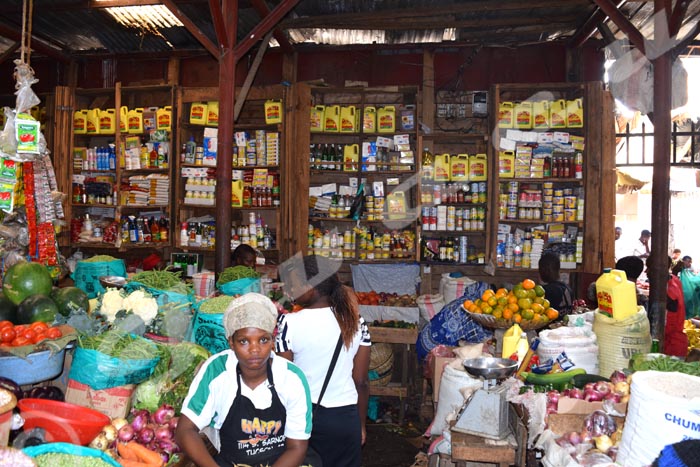
A merchandise stall at Bujumbura City Market known as “Kwa Siyoni.”
On Wednesday, 1st of April, after the statement of the Minister of Health, there was a frantic purchase of non-perishable food.
At the City Market commonly known as “Kwa Siyoni”, city dwellers come to get their supplies and fill bags with food products.
“It’s really complicated,” complains Jeannette, a woman met on the spot. She says traders are taking advantage of this pandemic to increase product prices. The prices that have increased are those of basic foodstuffs such as rice, beans and cooking oil.
This situation worries Jeannette. “One kg of beans called Kinure which was bought at BIF 1600 before the declaration of the pandemic rose to BIF 2300”
According to her, the price of yellow beans that was BIF2200/kg is currently sold at BIF 2700. “Kirundo” beans are bought today at BIF 2000 per kilo while they were sold at 1600 BIF per kilo on March 31.
For the moment, this woman, who was already struggling to make ends meet before the pandemic, finds herself in a delicate situation and has trouble hiding her sadness.
“I had come to get 10 kg of rice and 10 kg of beans. But I’ve discovered that my budget is not sufficient, “This mother says she doesn’t want to see her children starve. “I will only buy half of what I had planned.”
She added that if she had enough money, she would make a stock of food.” In any case, nobody knows when this coronavirus will stop.”
Consumers get anxious
Divine is also in disarray. She wants to buy cooking oil called “Golden”. But, she realizes that the price of this product has increased: “In just one night, the price of a quantity of 5 liters went from BIF 22,000 to BIF 27,000.”
Today, she concludes, only those who have the means can obtain it. For her, only the wealthy will survive if Covid-19 spreads.
According to a trader met in this market, this increase is caused on the one hand by the consumers themselves. The more the fear of the coronavirus spreads, the more consumers rush to the markets to get supplies. Stocks are empty, and traders cannot meet the demands. However, the situation is likely to continue to worsen as importers have not made orders.
According to him, when stocks go down, prices go up because the cheapest items sell faster. Consumers therefore have no choice but to end up buying these same products at more expensive prices.
On the other hand, traders can take advantage of the imbalance between supply and demand to raise prices.
This is the consequence of rising costs in the supply chain. Basically, the stress caused by the coronavirus causes the scarcity of a certain number of products. Consequently, there is speculation.
This trader thus calls on the government to closely monitor price developments in order to stem speculation that may arise as a result of this pandemic.
Gaston Sindimwo: “Those who help quarantined people get out are like criminals.”
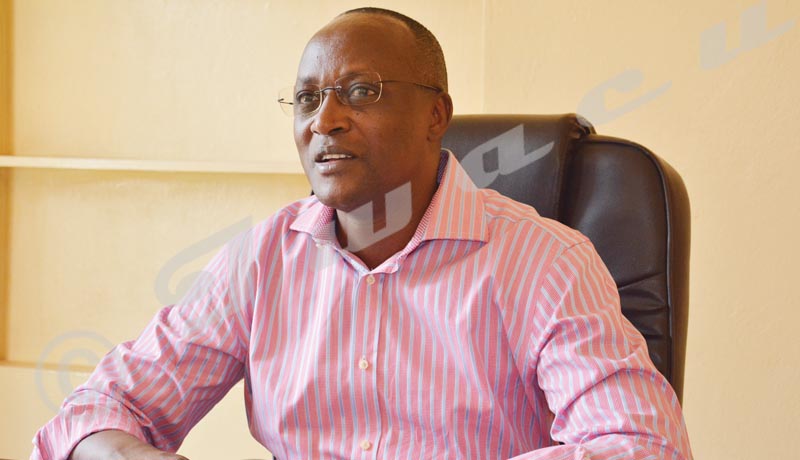
Gaston Sindimwo: “Burundians from overseas wishing to return should do so at a later date.”
“Those who help people get out of quarantine after three or four days because they have given bribes are similar to criminals,” said Gaston Sindimwo, first vice-president of the Republic. He said that on Thursday, April 2 in an interview with Iwacu.
Mr. Sindimwo wants that borders be closed. “Staff working at the borders must return and work from home.” said the UPRONA party presidential candidate.
For the First Vice-President of the Republic, this is the best solution to protect against coronavirus.
He also calls on the police to be vigilant for the interests of the Burundian people. “Otherwise, they will be prosecuted by the law,” he warned.
As for Burundians living abroad and wanting to return during this period, he asked them to abstain. “They should wait until a later date to return home,” he added.
Translated into English by Pierre Emmanuel Ngendakumana



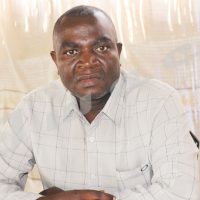














 IWACU Open Data
IWACU Open Data

